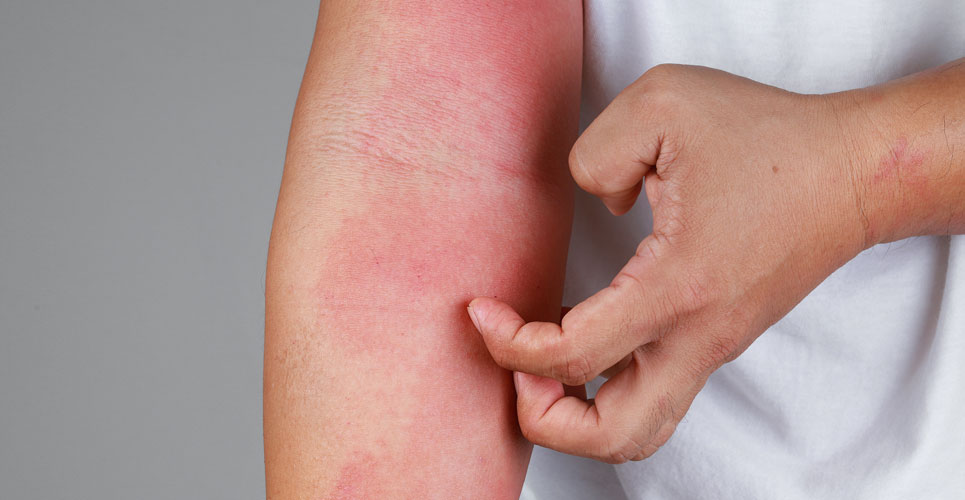Atopic eczema patient outcomes such as disease control and satisfaction from use of dupilumab are positive and maintained for up to 12 months
Atopic eczema patient outcomes remain positive in clinical practice for at least 12 months with the use of dupilumab according the findings of a study by a team from Yale University School of Medicine, Connecticut, US.
Patients with atopic eczema experience skin pruritus, pain and disturbed sleep which combine to create a negative impact on their quality of life. While topical therapies are able to provide symptom control for many, moderate to severe disease requires the use of systemic agents. Despite this, real-world data suggests that patients with moderate-to-severe continue to experience recurrent flares and an impaired quality of life, highlighting an unmet therapeutic need.
The monoclonal antibody dupilumab has been shown in clinical trials to improve the signs and symptoms of atopic eczema such as pruritus, anxiety, depression and quality of life. Although the value of dupilumab in clinical practice has been examined in studies, many of these have often focused on disease activity and there currently a lack of data on atopic eczema patient outcomes.
For the present study, researchers focused on evaluating the patient experience of dupilumab in clinical practice with an emphasis on disease control and quality of life in the first year after initiation of the drug. They established RELIEVE-ED (EaRly RealWorLd PatIent EValuation for DupixEnt in Atopic Dermatitis), which was a prospective, longitudinal survey study. The researchers invited adult patients with atopic eczema prescribed dupilumab and enrolled in a patient support program to participate in the study. These individuals were asked to complete an online questionnaire, after starting treatment and then at months 1, 2, 3, 6, 9 and 12. The survey collected information on demographic, prior treatments and medical history. In addition, disease control was assessed with the Atopic Dermatitis Control Tool (ADCT) which evaluates overall symptoms with scores ranging from 0 to 24, with higher scores reflecting poorer control and scores less than 7, defining adequate disease control. Other measures assessed included quality of life and the impact on work productivity. For their analysis, the team examined differences between baseline and at 12 months.
Findings
Data on atopic eczema patient outcomes were provided by 699 individuals with a mean age of 46.2 years (61.7% female) although only 483 patients (mean age = 47.1 years, 61.3% female) completed the survey at 12 months.
The mean baseline ADCT was 15.8 and this reduced to 4.4 at 12 months (p < 0.01 vs baseline). At baseline only 3% of participants reported no disease flares in the past 4 weeks but this increased to 43.5% at 12 months (p < 0.01 vs baseline). Similarly, at the start of treatment, only 15.3% of patients reported no trouble with sleep but by 12 months, this had increased to 77.6% (p < 0.01 vs baseline).
In terms of quality of life, scores reduced from a mean of 14.4 to 3.5 after 12 months (p < 0.01 vs baseline). Finally, 40.2% of participants reported an impairment in work, mainly due to absenteeism and this reduced to 9.6% at 12 months (p < 0.01 vs baseline). While at baseline, only 17.7% of patients reported satisfaction with treatment, this increased to 85.1% at 12 months.
The authors concluded that patients experienced benefits from the use of dupilumab which improved over a 12 month period, adding that these results were consistent with the findings from clinical trials.
Citation
Strober B er al. Treatment Outcomes Associated With Dupilumab Use in Patients With Atopic Dermatitis 1-Year Results From the RELIEVE-AD Study. JAMA Dermatol 2021

